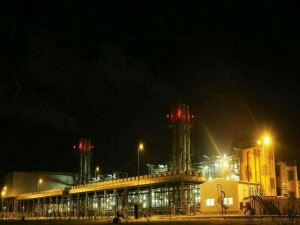NEPRA Likely to Approve Significant Hike in Baggasse IPP Fuel Costs
The National Electric Power Regulatory Authority (Nepra) is poised to greenlight a substantial increase, approximately 60%, in the Fuel Cost Component (FCC) for baggasse-fired independent power producers (IPPs). This adjustment would raise the FCC to Rs9.8719 per unit, a notable jump from the current rate of Rs5.9822 per unit.
According to the Central Power Purchasing Agency–Guaranteed (CPPA-G), consumers will absorb a 30% impact due to the devaluation of the rupee, while the remaining 70% will be addressed by the baggasse-fired IPPs themselves.
The Chief Executive Officer (CEO) of CPPA-G, Rihan Akhtar, revealed these details during a public hearing focused on revised tariff review petitions submitted by nine baggasse-fired IPPs. He also noted that the total savings expected from the revised agreements with these IPPs amount to Rs235 million over the lifespan of the projects.
CPPA-G and the nine baggasse IPPs jointly presented tariff revision requests. The IPPs involved are:
- Chiniot Power Ltd
- JDW Sugar Mills Ltd (Units II)
- JDW Sugar Mills (Unit III)
- Al-Moiz Industries Ltd
- Chanar Energy Ltd
- Thal Industries Corporation Ltd
- Hamza Sugar Mills Ltd
- RYK Mills Ltd
- Shahtaj Sugar Mills Ltd
Documents shared during the hearing indicated that CPPA-G and the IPPs have agreed to implement the revised FCC tariff starting October 1, 2021, based on the following conditions:
- Rs4,500/ton as of October 1, 2021, with a 5% annual indexation thereafter.
- FCC calculation based on a Calorific value of 7000 BTU/kg.
Other stipulations within the revised agreements include:
- A 50% reduction in the Working Capital Component (WCC) for all Baggasse IPPs, excluding Shahtaj, whose tariff doesn’t include a WCC component.
- Fixing RoE and RoEDC components at PKR 168/USD, with no future USD indexation.
- Allowing indexation of local O&M based on the lower of (a) 5% per annum or (b) the actual average National Consumer Price Index (NCPI) for the preceding twelve months for all Baggasse IPPs.
- Allowing foreign O&M – PKR/USD depreciation only up to 70% of the actual depreciation per annum. Conversely, if the PKR appreciates against the USD in a year, 100% of such appreciation will be passed on to consumers.
- Allowing IPPs to sell electricity to Bulk Power Consumers (BPCs), contingent upon amendments to their GL and EPA, and a commitment to compensate CPPA-G for each unit supplied to BPCs.
- Setting the insurance cap during operation at 0.7% of the EPC cost for Chiniot Power Ltd, aligning with other baggasse IPPs.
- Reducing the reference O&M component by 10% for Chiniot Power Ltd, aligning with other baggasse-based IPPs.
- Revising the sharing mechanism beyond the Net Annual Plant Factor (for Baggasse-based IPPs, excluding Shahtaj).
CPPA-G reported the following changes:
- FCC reduced by Rs2.6069 per unit, from Rs12.4788 to Rs9.8719 per unit.
- Working capital reduced by Rs0.1669 per unit, from Rs0.3338 to Rs0.1669 per unit.
- RoE reduced by Rs0.3014 per unit, from Rs2.0122 to Rs1.7108 per unit.
However, there will be no change in variable O&M (L) of Rs0.2835 per unit, fixed O&M(L) Rs1.1147 per unit and insurance Rs0.1543 per unit. This results in an overall tariff reduction of Rs3.0752 per unit, from Rs17.1341 to Rs14.0589 per unit.
During the session, Arif Bilwani, an intervener, pointed out that currency appreciation is infrequent in Pakistan, while depreciation is common, meaning consumers often bear 30% of the devaluation impact.
Another participant, Aamir Sheikh, noted that consumers are currently paying about Rs6 per unit for electricity from baggasse IPPs. With the current generation tariff of Rs14 per unit set to decrease to Rs10 per unit, baggasse IPPs tariff will actually increase.
He added that NEPRA has increased the power purchase price from baggasse IPPs to Rs14 per unit, with a fuel cost of nearly Rs10 per unit, questioning the calculations behind the Rs14 figure, especially since baggasse power was historically cheaper. He also warned of potential backdated arrears that would be passed on to consumers.
NEPRA Chairman Chaudhry Waseem Mukhtar clarified that the tariff is being further reduced by about Rs1 per unit in the QTA of the third quarter (Jan-March) 2024-25.



Comments (0)
No comments yet. Be the first to comment!
Leave a Comment